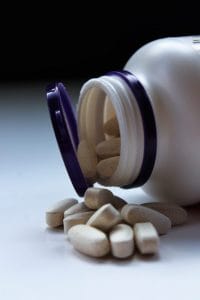Bloating: A Common Gastrointestinal Complaint
Bloating, a prevalent gastrointestinal symptom, affects many individuals worldwide. Characterized by a feeling of fullness, swelling, or tightness in the abdomen, bloating can be both uncomfortable and distressing. While various factors contribute to bloating, one area of interest in its management is the role of probiotics.
Probiotics: The Beneficial Bacteria
Probiotics are live microorganisms, primarily bacteria, which when consumed in adequate amounts, confer health benefits to the host. Found in fermented foods like yogurt, kefir, and sauerkraut, and also available as dietary supplements, probiotics are often hailed for their gut health benefits.
The Gut Microbiome: A Complex Ecosystem
Our gut hosts a complex ecosystem of microorganisms, collectively known as the gut microbiome. This microbiome plays a crucial role in digestion, immune function, and overall health. An imbalance in this ecosystem, termed dysbiosis, has been linked to various gastrointestinal issues, including bloating.
Probiotics and Bloating: What Does the Research Say?
Several studies have explored the impact of probiotics on bloating. Probiotics are thought to alleviate bloating by restoring the balance of the gut microbiome, enhancing digestion, and modulating the immune response.
- Restoring Microbial Balance: Probiotics can help in rebalancing the gut microbiota. A healthy, balanced microbiome is essential for efficient digestion and gas production regulation, potentially reducing bloating.
- Enhancing Digestion: Certain probiotic strains assist in breaking down food substances that are typically hard to digest, like lactose in dairy products. Improved digestion can lead to less gas production and, consequently, reduced bloating.
- Modulating Immune Response: Probiotics can influence the gut’s immune response, potentially reducing inflammation, which is sometimes implicated in bloating.
Clinical Evidence: A Closer Look
Clinical trials have provided mixed results. Some studies report a significant reduction in bloating symptoms with probiotic use, while others show minimal or no effect. The variability in results could be due to differences in probiotic strains used, dosages, study designs, and participant characteristics.
Strain-Specific Effects: Not All Probiotics Are Equal
It’s important to note that not all probiotics are the same. Different strains have different effects. For instance, Bifidobacterium and Lactobacillus strains are among the most studied for bloating relief. However, the efficacy can vary significantly from one strain to another.
Dosage and Duration: Key Factors in Probiotic Efficacy
The effectiveness of probiotics also depends on the dosage and duration of use. Higher doses might be more effective, but the optimal dose varies. Similarly, probiotics may need to be consumed for several weeks before their benefits become apparent.
Individual Responses: A Personalized Approach
Individual responses to probiotics can vary. Factors like the existing gut microbiota composition, dietary habits, and overall health can influence how one responds to probiotic supplementation.
Beyond Probiotics: A Holistic View of Gut Health
While probiotics can be beneficial, they are not a standalone solution for bloating. A holistic approach, including dietary modifications, stress management, and regular physical activity, is essential for optimal gut health.
Conclusion: A Promising, Yet Complex, Solution
In conclusion, probiotics hold promise in managing bloating, but their effectiveness is influenced by various factors, including the specific strains used, dosage, individual gut microbiota, and lifestyle factors. Further research is needed to fully understand their role and to develop tailored probiotic treatments for bloating.
For those considering probiotics for bloating, consulting with a healthcare professional is advisable to determine the most suitable approach based on individual health needs and conditions.
